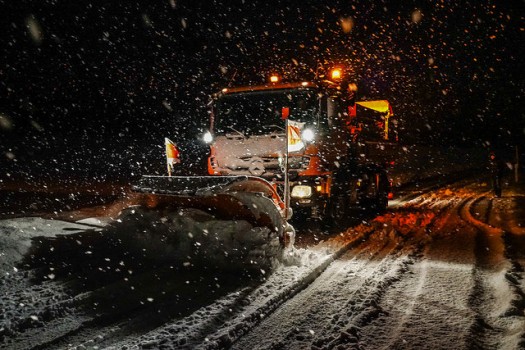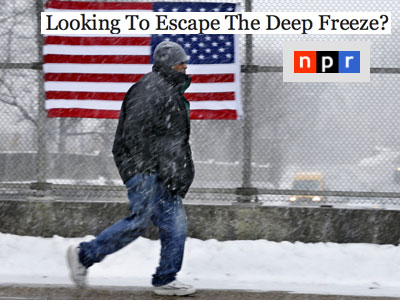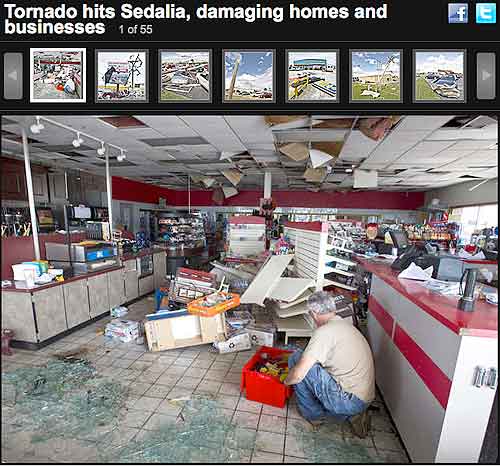Each winter, some regions brace for major weather events and blizzards that can dramatically affect local and national economies. Some storms bring with them dangerous travel conditions, public and private business closings, and a healthy dose of media coverage.
The National Oceanic and Atmospheric Administration’s National Climatic Data Center houses a database of weather events and climate extremes helping reporters analyze how weather events and economic indicators correlate.
Here are some areas to explore:
Retail
Harsh weather can impact retail sales and gross domestic product during the winter. Analysts and reporters have cited poor weather as reasons consumers stay in and stop spending. But is that true?
A few sources to help you find out: The U.S. Department of Commerce’s Bureau of Economic Analysis releases a quarterly report on GDP, organized by industry. Check the data in your region for the winter quarters and see how retail stacks up. The Wall Street Journal explored correlations for several years nationally.
One example: In 2015, some media outlets reported a slow Q1 GDP and cited weather events as a potential culprit.
On the positive side, do other retail sectors notice an increase in sales to meet specific weather-related needs? Other reporting ideas include:
- Check with home improvement retailers and hardware stores for information on sales of items such as plows, shovels and ice melters.
- Research whether sports outfitters see sales of winter gear increase ahead of a big snowstorm.
- Reach out local businesses and ask whether they see periodic increases in sales during blizzards or other weather events that look dramatically different to sales of prior weeks and following weeks?
- Do purchases of these specialty items help to mitigate any overall negative impact of shoppers staying indoors?
- Ask consumers: When trapped indoors, does their spending stop entirely, or does it merely shift online?
Travel
While traveling can stress out passengers, airlines are constantly handling circumstances outside their control — inclement weather, dangerous flying conditions, delayed and even canceled flights. In years past, Global Eagle Entertainment (formerly MasFlight), a media and information company for the travel industry, evaluated flight and operational data for airlines. The group estimated storms in the 2014/15 winter cost the airline industry nearly $200 million.
Canceled and delayed flights can have a ‘snowball’ effect on the entire travel and hospitality industry. Reporters should also reach out to local hotels, convention centers or tourism departments to find out if local stays and events were affected by weather.
Insurance and Auto
The Reynolds Center reported in 2014 and 2015 on a slew of winter storms and their impact on drivers and their insurance companies as potential money stories. Compare the dates of safety and accident reports in your community with the dates of weather reports and safety advisories. Also, talk with local insurance agents and companies to explore increases in claims and premiums following extreme weather events. According to a recent release, the Insurance Information Institute noted that winter storms caused 7 percent of the total U.S. insured “catastrophe losses” between 1995 and 2014.











